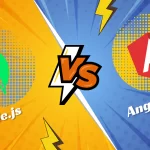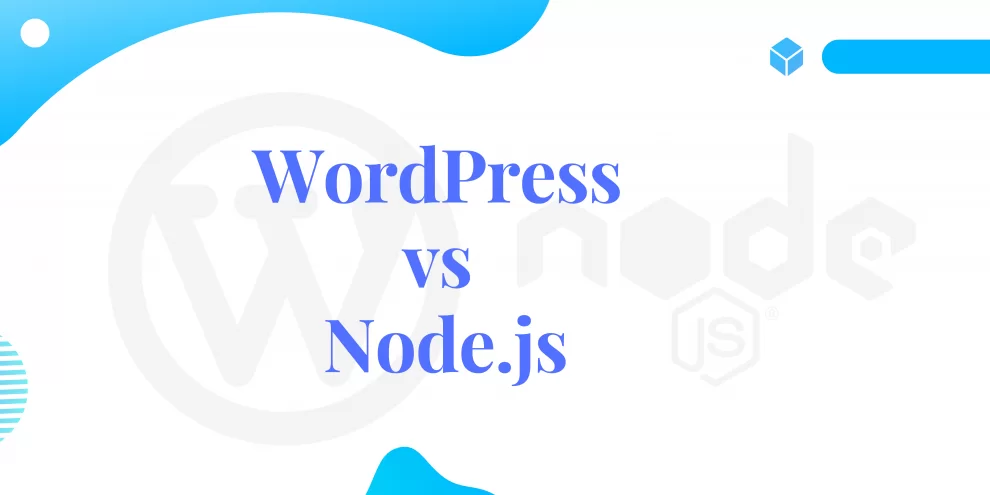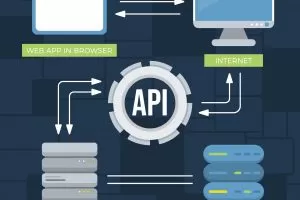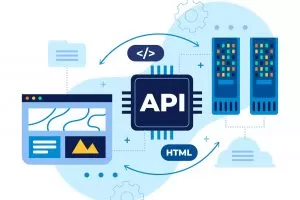In the ever-evolving landscape of web development, the choice between WordPress and Node.js in 2024 is a pivotal decision that can significantly shape the trajectory of your digital endeavors. Both platforms boast distinct strengths and cater to diverse development needs, making it essential to grasp the nuanced differences between them. This exploration aims to shed light on the critical disparities between WordPress and Node.js, providing a comprehensive guide for developers, businesses, and enthusiasts navigating the intricate web development ecosystem. Explore the WordPress vs Node.js 2024 differences to make informed decisions tailored to your project’s unique requirements.
WordPress, a stalwart in the realm of content management systems, has long been celebrated for its user-friendly interface and expansive plugin ecosystem. Serving as the backbone for millions of websites globally, WordPress has proven its versatility, making it an attractive option for bloggers, small businesses, and large enterprises alike. However, in the other corner of the ring stands Node.js, a robust server-side JavaScript runtime, renowned for its exceptional speed and scalability. As we traverse the intricacies of WordPress vs Node.js in 2024, we’ll dissect the performance disparities, flexibility, community support, and various other factors that influence this crucial decision-making process. Join us on this exploration as we navigate the technological crossroads defining the digital landscape.
WordPress Unveiled: A User-Friendly Powerhouse
Diving into the intricate realm of web development, WordPress emerges as a user-friendly juggernaut, simplifying the process for creating and managing websites. Its popularity stems from its accessibility, catering to a broad spectrum of users with varying technical backgrounds. The straightforward nature of WordPress has transformed website creation into an intuitive experience, making it a preferred choice for both beginners and seasoned developers.
Themes and Plugins: At the heart of WordPress’s appeal lies its extensive library of themes and plugins. This dynamic combination allows users to customize their websites effortlessly. Themes provide pre-built design templates, ensuring a visually appealing and professional look, while plugins offer modular functionalities, expanding the capabilities of a WordPress site. This flexibility makes WordPress an ideal choice for bloggers, businesses, and individuals seeking a personalized online presence without the complexities associated with more intricate development frameworks.
Simplicity in Interface, Strengths, and Limitations: The simplicity of the WordPress interface has been a driving force behind its widespread adoption. Users can navigate and manage their content with ease, focusing on the creative aspects of their digital presence. However, it’s crucial to recognize that while WordPress excels in certain scenarios, it may encounter challenges when tasked with handling highly complex and dynamic web applications. As we embark on the WordPress vs Node.js 2024 journey, we’ll delve deeper into these considerations, unraveling how WordPress positions itself within the ever-evolving landscape of web development.
Node.js Unleashed: Harnessing Speed and Scalability
In the dynamic arena of web development, Node.js emerges as a formidable force, revered for its exceptional speed and scalability. As a server-side JavaScript runtime, Node.js has redefined the possibilities for developers seeking high-performance solutions. Unlike traditional server-side technologies, Node.js operates on a non-blocking, event-driven architecture, enabling swift execution of code and making it an ideal choice for real-time applications.
JavaScript Powerhouse:
Node.js leverages the ubiquity of JavaScript, unifying the language for both frontend and backend development. This coherence streamlines the development process, allowing developers to seamlessly switch between client-side and server-side coding. The JavaScript-based foundation of Node.js not only enhances developer efficiency but also contributes to the platform’s widespread adoption among those already familiar with the language.Scalability and Real-Time Capabilities:
A standout feature of Node.js is its unparalleled scalability, making it adept at handling a large number of simultaneous connections. This capability is particularly advantageous for applications requiring real-time updates, such as messaging apps and online gaming platforms. Node.js’s event-driven architecture ensures that it excels in scenarios where responsiveness and scalability are paramount, positioning it as a top choice for developers with performance-centric requirements.Versatility for Custom Solutions:
Node.js embraces a modular approach, allowing developers to structure their applications in a way that best suits their needs. This flexibility fosters creativity, empowering developers to craft custom solutions tailored to the unique demands of their projects. Whether building APIs, microservices, or full-stack applications, Node.js provides the tools for developers to architect their systems in a manner that aligns with their vision.
As we embark on the exploration of WordPress vs Node.js differences in 2024, understanding the unleashed power of Node.js sets the stage for a nuanced comparison. The speed, scalability, and versatility of Node.js bring a distinctive flavor to the web development landscape, and it’s these characteristics that will be weighed against the familiar strengths of WordPress in the pages that follow.
Also Read: How to Install Node.js and NPM on Windows and Mac?
Performance at the Core: WordPress vs Node.js 2024
In the ever-evolving web development landscape, performance is a key player in the WordPress vs Node.js 2024 debate. Let’s explore how each platform tackles the speed and efficiency challenge.
Node.js:
Node.js takes the lead with its non-blocking, event-driven architecture, ideal for real-time applications. Whether it’s chat services or live streaming, Node.js excels by efficiently handling multiple connections concurrently. Its nimble, asynchronous nature caters to the demands of modern, responsive web applications.WordPress:
WordPress is known for efficient handling of diverse websites, from small blogs to large enterprises. However, in the WordPress vs Node.js 2024 comparison, it faces scalability challenges for highly dynamic applications. The traditional server model and synchronous PHP execution may impact response times compared to Node.js.Choosing Wisely:
In the WordPress vs Node.js 2024 dilemma, project nature dictates the winner. Node.js shines for real-time interactions, while WordPress proves versatile for various projects but may need optimizations for performance-centric ventures. As we explore further, observe how each contender navigates the performance landscape, shaping choices for developers and businesses.
Flexibility and Customization
In the WordPress vs Node.js 2024 clash, the ability to tailor and customize digital spaces becomes a critical factor. Let’s unravel how each platform addresses flexibility and customization needs.
WordPress:
WordPress stands out with an extensive library of themes and plugins, empowering users to effortlessly customize their websites. Themes provide pre-built design templates, ensuring a professional look, while plugins offer modular functionalities. This flexibility makes WordPress ideal for bloggers, businesses, and individuals seeking a personalized online presence.Node.js:
Node.js embraces a modular approach, allowing developers to structure applications as needed. This flexibility fosters creativity, empowering developers to craft custom solutions tailored to project demands. Whether building APIs, microservices, or full-stack applications, Node.js provides tools for architects to realize their vision.Balancing Act:
In the WordPress vs Node.js 2024 exploration, WordPress excels in user-friendly customization. However, for developers seeking a more tailored approach, Node.js offers the freedom to structure applications uniquely. The choice hinges on the balance between ease of use and the need for bespoke solutions in the ever-evolving landscape of web development.
Community Support
In the digital realm, community support can be a beacon, illuminating the path for developers and businesses alike. As we navigate the WordPress vs Node.js 2024 landscape, let’s delve into the role community support plays for each platform.
WordPress – A Massive Hub of Resources:
WordPress boasts a massive and dedicated community, contributing to its extensive resources. Tutorials, forums, and troubleshooting assistance abound, making it a reliable choice for those seeking a wealth of knowledge. The vast community ensures continuous improvement and a plethora of solutions for common challenges.Node.js – Rapid Growth, Evolving Support:
While Node.js is rapidly growing, its community support may not match the extensive ecosystem of WordPress. However, the community’s dynamic nature means it’s continually evolving. Developers relying on Node.js can tap into a network that’s expanding in real-time, with new resources and insights emerging regularly.Decision Dynamics:
In the WordPress vs Node.js 2024 decision-making process, the choice comes down to balancing extensiveness and dynamism. WordPress offers a mature and extensive community, providing stability and a vast knowledge base. On the other hand, Node.js, with its evolving community, brings freshness and the potential for cutting-edge solutions. The decision rests on the individual or team’s preferences for support dynamics in their web development journey.
Ease of Learning:
In the fast-paced world of web development, the learning curve can significantly impact technology adoption. As we compare WordPress and Node.js in 2024, let’s explore how each platform facilitates the learning process.
WordPress – Intuitive Interface for Quick Starts:
WordPress shines in terms of ease of learning, making it accessible even to beginners in web development. Its intuitive interface streamlines the process of building and managing websites. Extensive documentation and a user-friendly environment contribute to a shorter learning curve, allowing individuals to swiftly grasp the essentials of creating a digital presence.Node.js – JavaScript Familiarity for Swift Adaptation:
Node.js, leveraging the ubiquity of JavaScript, appeals to developers already familiar with the language. Its unified language for both frontend and backend development streamlines the learning process, allowing developers to transition seamlessly between client-side and server-side coding. However, for those new to JavaScript, the learning curve may be steeper compared to WordPress.Striking a Balance – Expertise vs Accessibility:
In the WordPress vs Node.js 2024 dilemma, the ease of learning becomes a pivotal factor. WordPress, with its beginner-friendly environment, is an excellent choice for those seeking quick starts. On the other hand, Node.js caters to developers with JavaScript expertise, offering a unified language but potentially requiring a bit more effort for those new to the language. The decision rests on striking the right balance between accessibility and the expertise of the development team.
Security Concerns
In the ever-evolving digital landscape, security is paramount. As we scrutinize WordPress and Node.js in 2024, let’s delve into how each platform addresses security concerns.
WordPress – Vigilance in a Populous Ecosystem:
WordPress, due to its popularity, is a common target for cyber threats. However, its extensive community and dedicated security efforts make it a secure choice. Regular updates, a vigilant user base, and adherence to best practices contribute to a robust security framework. Nevertheless, users must stay proactive in implementing security measures to fortify their WordPress sites.Node.js – Robust Security Model with Developer Responsibility:
Node.js adopts a robust security model, providing a secure foundation for applications. However, the responsibility for implementing best security practices lies with the developer. Node.js allows for granular control, empowering developers to tailor security measures to the specific needs of their projects. Diligence in coding practices and staying abreast of security updates is crucial in maintaining a secure Node.js application.Decision Dynamics:
In the WordPress vs Node.js 2024 security debate, the decision hinges on balancing the platform’s popularity and the level of control desired. WordPress, with its populous ecosystem, requires users to be proactive in security. Node.js, offering a robust foundation, places more responsibility on developers but provides greater control over security measures. The choice ultimately depends on the user’s comfort level with these dynamics in safeguarding their digital frontier.
Also Read: Difference between Node.js and React.js
Scalability
In the dynamic arena of web development, the ability to scale is a make-or-break factor. Let’s explore how WordPress and Node.js measure up in terms of scalability in 2024.
Node.js:
Node.js takes the lead in scalability with its ability to handle a large number of simultaneous connections. This feature is particularly advantageous for applications requiring real-time updates, such as messaging apps and online gaming platforms. The event-driven architecture of Node.js ensures responsiveness, making it a preferred choice for projects with scalability as a top priority.WordPress:
WordPress, while scalable to a certain extent, may require additional optimizations for extensive growth. Its traditional server model and synchronous PHP execution can impact scalability, especially in comparison to the nimble, asynchronous nature of Node.js. WordPress excels in accommodating a diverse range of websites but may face challenges in highly dynamic and performance-centric projects.Decision Dynamics – Project-Specific Scaling Needs:
In the WordPress vs Node.js 2024 scalability challenge, the decision hinges on project-specific needs. Node.js shines in scenarios demanding a high level of scalability and real-time capabilities. WordPress, on the other hand, offers scalability within defined parameters and proves formidable for a broad range of projects. Choosing the right platform involves aligning scalability requirements with the unique demands of the web development venture at hand.
Conclusion
In navigating the intricate landscape of web development, the WordPress vs Node.js debate in 2024 reveals a nuanced interplay of strengths and considerations. WordPress stands tall as a user-friendly giant, offering an extensive library of themes and plugins, making it an accessible choice for a diverse range of projects. Its scalability, however, may encounter challenges in highly dynamic and performance-centric applications. On the other side, Node.js emerges as a performance powerhouse, excelling in scalability and real-time capabilities. Its event-driven architecture and JavaScript familiarity empower developers to craft high-performance applications.
The decision between WordPress and Node.js in 2024 is not a one-size-fits-all scenario. It’s a meticulous balance of project requirements, development team expertise, and long-term goals. WordPress caters to those seeking ease of use and versatility, while Node.js appeals to developers with a focus on performance and scalability. Whether opting for the familiarity of WordPress or the dynamic capabilities of Node.js, the key lies in aligning the chosen platform with the unique needs of the web development venture at hand.
As the digital frontier continues to evolve, staying informed about the strengths, trade-offs, and advancements of each platform is crucial. The WordPress vs Node.js decision is not just about technology; it’s about crafting a digital experience that aligns with your vision and propels your online presence into the future. Choose wisely, adapt dynamically, and let the WordPress vs Node.js saga guide you toward a successful and thriving web development journey in the years to come.















